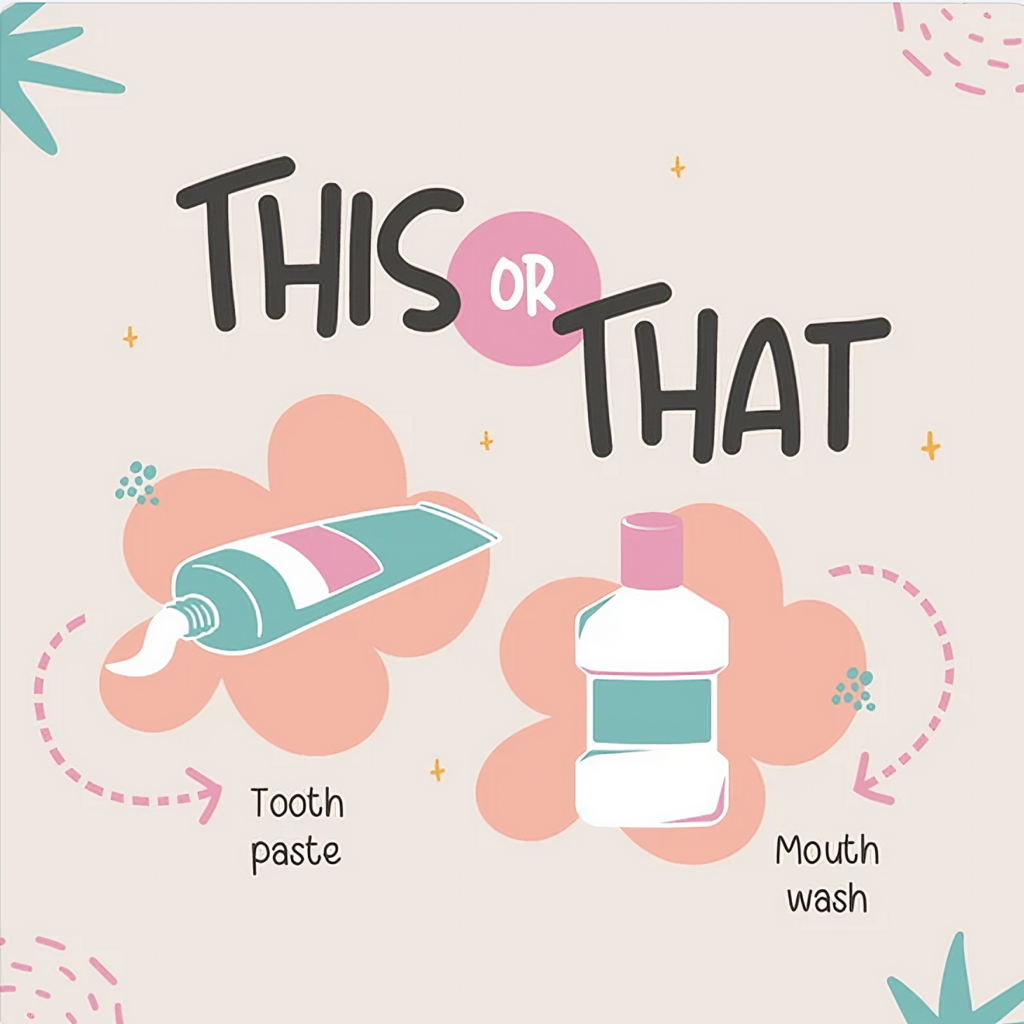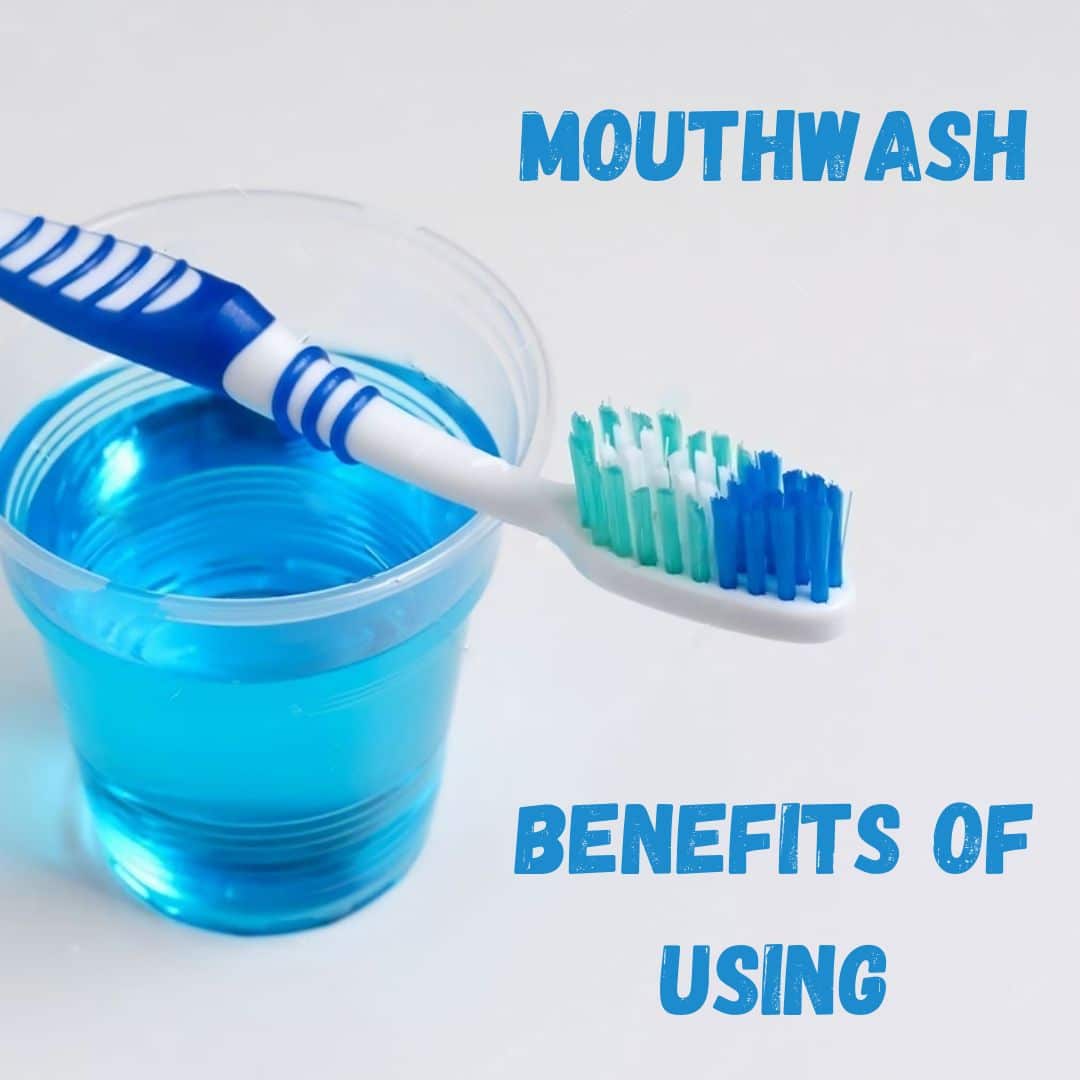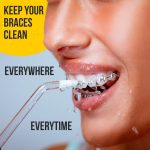It is often recommended to use mouthwash after brushing to keep the mouth clean and free from bacteria.
We all know we should brush our teeth at least twice daily, but what about mouthwash? Is it really necessary to use mouthwash after brushing, or is it just an extra step that isn’t necessary? Let’s take a closer look at the role of mouthwash in oral care.
What is mouthwash?
Mouthwash is a liquid that is used to rinse the mouth. It can be either medicated or non-medicated. It typically contains water, alcohol, various chemicals, and spices. The purpose of mouthwash is to freshen breath and cleanse the mouth and teeth.
How does mouthwash work?
Mouthwash works by killing bacteria and other germs in the mouth. This helps to prevent bad breath and tooth decay.
The ingredients in mouthwash work together to eliminate bacteria, remove plaque, and freshen your breath. The alcohol in mouthwash can kill bacteria, while the other ingredients help to remove plaque and debris from teeth.
What does the mouthwash consist of?
The mouthwash consists of fresh breath oral rinse, anticavity fluoride mouthwash, and essential oils. The mouthwash ingredients help keep the mouth clean and free from bacteria. They also help to reduce the risk of cavities and gum disease. The fluoride in the mouthwash helps to protect the teeth from decay, and the essential oils help to freshen the breath.
What are the benefits of mouthwash?
Using mouthwash can help to freshen your breath, remove bacteria, and prevent tooth decay. Rinsing with mouthwash can help to remove plaque and bacteria from teeth and gums, which can help to improve oral health.
Mouthwash can also help to freshen your breath.
Are there any risks associated with using mouthwash?
Some people may experience irritation or allergic reactions to mouthwashes. Reading the label carefully and following directions when mouth washing is important.
Mouthwashes that contain alcohol can cause dryness of the mouth, which can lead to increased bacteria growth. It is essential to choose a non-alcoholic mouthwash if you are concerned about this side effect.
Some people may also be allergic to the ingredients in mouthwashes, so it is important to read the label carefully before purchasing a product.
How do I choose a mouthwash?
There are many different types of mouthwashes available on the market today. It is important to choose a product that is right for your needs. Talk to your dentist or doctor if you are unsure which product to use.
When choosing a mouthwash, you want to find one that is alcohol free and has sodium fluoride. You also want to find one that is hydrogen peroxide. These are the best mouthwashes for your teeth and gums.
You want to ensure that you find a gentle mouthwash on your teeth and gums. You also want to find a mouthwash that is effective at killing bacteria.
How do I use mouthwash?
Mouthwash should be used as directed on the label. Most products recommend swishing the liquid in your mouth for 30 seconds before spitting it out.
Should you use mouthwash before or after brushing?
The answer to this question is not as straightforward as it may seem. While most dentists recommend using mouthwash after brushing, some do it before brushing.
The main reason for recommending mouthwash after brushing is that it helps kill bacteria and germs that may linger in the mouth from food or other sources. The problem with this argument is that if you use mouthwash before brushing, you can wash away all of the natural protection your teeth have against these bacteria and germs.
Those who recommend using mouthwash before brushing say that this will help reduce plaque buildup on your teeth and help you get a better clean feeling in your mouth. They also argue that using it before brushing will help remove excess food particles from your teeth, so they are not left sitting there for long periods, leading to tooth decay and cavities.
Should I rinse after using mouthwash?
The common misconception is that you must rinse your mouth after mouthwash. However, this is not true. The mouthwash will do its job by killing off the germs in the mouth; you don’t need to rinse it away.
If you want to get rid of any lingering taste, rinse your mouth with water would be a good idea.
What are some tips for using mouthwash?
Here are some tips for getting the most out of your mouthwash:
- Read the label carefully and follow the directions
- Swish the liquid around in your mouth for at least 30 seconds
- Spit out the mouthwash after rinsing
- Do not drink water immediately after the mouthwash.
- Do not eat or drink for 30 minutes after the mouthwash.
- Store mouthwash in a cool, dry place
- Replace mouthwash every three months or as directed by the manufacturer
Mouthwash With Alcohol
Alcohol is the commonly used ingredient in mouthwashes. The idea is that alcohol helps kill bacterial toxins in the mouth, but alcohol is not an active part of mouthwash. Alcohol helps to diffuse other active substances, e.g. oils.
Most alcohol mouthwashes can help clean your breath and fight gum infections. Bleeding gums and breath problems are caused by bacteria in mouths. Problems are limited. How does alcohol act against them?
Is alcohol free mouthwash best for bad breath?
When finding a fresh breath oral rinse, many people automatically gravitate towards products containing alcohol.
However, they may not realize that alcohol-free mouthwash can be just as effective – if not more so – at combating bad breath. Here are a few reasons: Firstly, alcohol-free mouthwash is less likely to cause dry mouth, which can exacerbate bad breath.
Alcohol can also irritate sensitive gums and mouths, leading to discomfort. Additionally, alcohol-based mouthwashes tend to have a strong taste that many people find unpleasant.
On the other hand, alcohol-free options often have more subtle – and pleasant – flavors. Finally, it’s worth noting that some research has shown that alcohol-free mouthwashes are more effective at reducing plaque and gingivitis than their alcoholic counterparts.
So not only will you enjoy fresher breath, but you’ll also be promoting oral health.
How to combine mouthwash with brushing and flossing?
It is essential to understand that the active ingredients in mouthwash are designed to target specific bacteria that cause gingivitis and other oral health problems.
When combined with traditional brushing and flossing, mouthwash can help improve oral health by targeting the specific bacteria that cause issues. In addition, mouthwash can help remove food particles and debris from your teeth and gums, which can help prevent tooth decay and gum disease.

Mouthwash is not a replacement for brushing and flossing, but rather an addition to your total care routine. Be sure to follow the directions on the bottle and swish the mouthwash around your teeth and gums for at least 30 seconds before spitting it out. For best results, use mouthwash twice a day after brushing and flossing.
Fluoride Mouthwash
Many types of mouthwash contain fluoride to help protect teeth from decay. Fluoride can also reduce dental decay and prevent tooth damage. This is primarily used in high-risk situations. The best fluoride wash for gastrointestinal problems is to avoid swallowing fluoride in your mouth because it can be toxic.
Fluoride mouthwash must not be used by children aged 6 months and up. Generally speaking, the daily rinse can help keep your skin healthy with fluoride. Daily or weekly oral rinses at 0.1% may be purchased.
Which brand of mouthwash has the most fluoride?
ACT mouthwash rinsing is an effective solution for mouth washing, as its products contain the tiniest fluoride.
Chlorhexidine mouthwash
Chlorhexidine is an antibacterial that’s often added to mouthwashes. It’s a wide-range bacterial antimicrobial that specifically targets bacteria causing gum disease. Occasionally dentists use chlorhexidine to remove bacteria from the gum line.
The study showed it reduces periodontal infections. Some concerns about chlorhexidine being ineffective against the bacteria that can cause breathlessness are. Long-term use of chlorhexidine mouthwash causes tooth swelling. This can also affect the flavor of foods and cause dry mouths. This can cause tooth tartar accumulation and gum erosion.
Hydrogen Peroxide Mouthwash
Hydrogen peroxide is used in most household cleaning products. The oxidizing chemical action of the product is highly antimicrobial. Oxidation destroys bacteria and kills them. The substance was tested for safety in 1-3% concentrations.
People respond very differently to hydrogen peroxide, which dilates the substance. Researchers believe this is due to a small increase in gum inflammation, and it may also cause tooth whitening.
Hydrogen peroxide causes bacterial growth damage and is a known problem on the tooth, and may cause tooth nerves to infiltrate and eventually die (pulpits).
Essential oils
Essential oils are extracted from plant substances with aroma and therapeutic qualities. Some mouthwashes contain essential oils. You might also make a homemade blend using tinctures in water.
The essential oil contains the essence of the aroma of plants characteristic of the plants extracted. The compounds possess antioxidant, antibiotic, and antiseptic properties.
They’re becoming popular because they’re natural medicine with zero side effects. This type of mouthwash is safe because it is an herbal product.
What is the best mouthwash in 2022?
It is no secret that mouthwash can help keep your mouth clean and healthy. But with so many brands and types of mouthwash on the market, it can be hard to know which one is right for you.
That’s why we’ve researched to find the best mouthwashes of 2022. We looked at six popular mouthwash brands and compared them based on ingredients, effectiveness, and price.
We also considered reviews from customers and experts to find the best options. Here are our top picks for the best mouthwashes of 2022:
- Listerine Total Care Anticavity Mouthwash: This mouthwash is a great all-around option for those looking for an effective, affordable option. It contains fluoride to help prevent cavities and antiseptic ingredients from killing bacteria and helping freshen breath.
- Crest 3D White Luxe Glamorous White Mouthwash: This luxurious mouthwash is perfect for those who want to take their oral care routine up a notch. It contains hydrogen peroxide to help whiten teeth and fluoride to protect against cavities. It’s a bit more expensive than some other options, but its high quality makes it worth the price tag.
- Tom’s of Maine Natural Fluoride-Free Mouthwash: This fluoride-free option is great for those looking for a more natural product. It contains herbal extracts and essential oils to help freshen breath and kill bacteria without harsh chemicals.
- Colgate Plax Gentle Routine Mouthwash: This gentle mouthwash is ideal for sensitive teeth or gums. It contains only natural ingredients, including aloe vera and chamomile, to help soothe the mouth while still being effective at killing bacteria and freshening breath.
- Scope Outlast 2in1 Mouthwash: This two-in-one mouthwash helps freshen breath and provides long-lasting protection against bad breath. It contains menthol and eucalyptus oil to help keep breath smelling fresh for up to 12 hours after use.
- Biotene Dry Mouth Oral Rinse: This oral rinse is specifically designed for those with dry mouth syndrome. It contains enzymes to help stimulate saliva production and glycerin to help keep mouth tissues moistened. No matter your needs, there’s a mouthwash out there that’s perfect for you. Do your research before purchasing to ensure you’re getting the best possible product for your money.
Can mouthwash get rid of cavities?
Mouthwash helps relieve bloating in the mouth and prevents tooth decay. Mouthwash can be very beneficial in preventing tooth decay and gum infections. Fluoride mouthwash is an effective way to replenish the mineral in the enamel.
Does mouthwash help with plaque buildup?
Mouthwash cleans the bad mouth, reduces plaque and gingivitis, combats teeth decay, and prevents cavities. Mouth washing is an effective method to help with restoring a healthy mouth. Mouthwash with fluoride may be useful in restoring healthy tooth enamel. It is not a sensation you get after mouth washing.
Conclusion:
Mouthwashes can help to freshen breath, kill bacteria, and prevent tooth decay. However, reading the label carefully and following these products’ directions is important. Talk to your dentist or doctor if you have questions about choosing or using a particular product.





